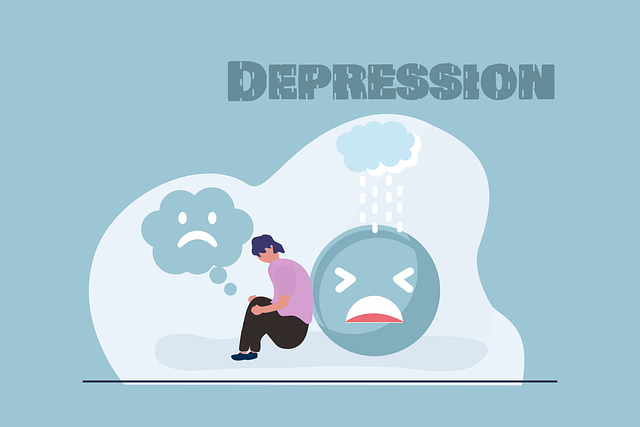Public awareness campaigns play a pivotal role in educating Lakewood communities about Oppositional Defiance Disorder (ODD), reducing stigma, and promoting positive change. Targeting key audiences such as parents, caregivers, adolescents, and healthcare providers ensures tailored messaging that addresses specific needs. Effective campaigns translate complex ODD information into simple, relatable language, highlighting signs, normalizing experiences, and emphasizing successful treatment options like therapy. Utilizing diverse media platforms and personal stories, these initiatives reach wide audiences, dispel myths, and encourage early intervention. Measuring success through quantitative and qualitative methods guides future strategies, ensuring efforts align with real-world improvements in ODD management and mental health discourse in Lakewood.
Public awareness campaigns play a pivotal role in educating communities about mental health conditions, like Oppositional Defiant Disorder (ODD). This article delves into the process of developing impactful initiatives for ODD therapy. We explore key strategies, from identifying target audiences in Lakewood to crafting compelling messages and measuring campaign success. Understanding these elements ensures effective outreach, fostering a more informed and supportive community for those seeking Lakewood ODD therapy.
- Understanding Public Awareness Campaigns and Their Impact
- Identifying Key Target Audiences for OCD Therapy Campaigns
- Crafting Effective Messaging and Communication Strategies
- Measuring Success and Evaluating the Reach of OCD Awareness Initiatives
Understanding Public Awareness Campaigns and Their Impact

Public awareness campaigns play a pivotal role in educating communities about various social and health-related issues. These initiatives aim to shed light on important topics, challenge societal norms, and promote positive change. By utilizing various media platforms and creative strategies, they can effectively reach a wide audience, fostering understanding and encouraging action. For instance, campaigns dedicated to raising awareness about Oppositional Defiance Disorder (ODD) in Lakewood, such as those focusing on therapy options, can significantly impact affected individuals’ lives by reducing stigma and promoting early intervention.
These campaigns are powerful tools for driving social transformation, especially when they target issues like ODD that often require community support and mental wellness resources. They empower people with knowledge about available treatments, including conflict resolution techniques and resilience-building programs. This proactive approach not only helps individuals manage disorders like ODD but also fosters a more compassionate and informed society.
Identifying Key Target Audiences for OCD Therapy Campaigns

Identifying key target audiences is a crucial step in developing effective public awareness campaigns for Oppositional Defiant Disorder (ODD) therapy, such as those aimed at Lakewood residents seeking help. When crafting messages for OCD therapy campaigns, it’s essential to consider the diverse needs of different groups within the community. This approach ensures that the campaign resonates with those who are most likely to benefit from ODD treatment and support services.
For instance, campaigns might target parents and caregivers who play a significant role in a child’s life and are often the first line of support for managing ODD symptoms. Another audience could be adolescents themselves, as they begin to navigate their emotions and behaviors independently. Additionally, healthcare providers can benefit from campaigns that highlight the importance of cultural competency training and Trauma Support Services, addressing potential barriers to access and providing tools for effective treatment delivery in a diverse community like Lakewood.
Crafting Effective Messaging and Communication Strategies

Crafting compelling messaging is a cornerstone of successful public awareness campaigns about mental health conditions like Oppositional Defiance Disorder (ODD). When targeting specific audiences, such as parents in Lakewood seeking therapy options for their children, it’s crucial to translate complex information into simple, relatable language. This involves highlighting the signs and symptoms of ODD, normalizing the experience, and emphasizing the availability of effective treatments like therapy. For instance, messaging could focus on how ODD impacts daily life and relationships, while offering solutions through tailored therapies that promote mood management skills.
Effective communication strategies go beyond messaging. They encompass leveraging diverse channels—social media, community events, educational workshops—to reach a wide range of audiences. Incorporating personal stories alongside expert guidance creates an authentic connection. Furthermore, integrating evidence-based practices like crisis intervention guidance and stress reduction methods ensures that campaign materials offer practical support. By combining clear messaging with multi-channel distribution, awareness campaigns can dispel myths about ODD and encourage families to seek help for proper Lakewood Oppositional Defiance Disorder therapy.
Measuring Success and Evaluating the Reach of OCD Awareness Initiatives

Measuring success and evaluating the reach of OCD awareness initiatives is paramount to understanding their impact and guiding future strategies. It involves a multifaceted approach, including quantitative metrics such as campaign engagement (e.g., website visits, social media interactions) and qualitative assessments like participant feedback and changes in self-reported symptoms. By combining these methods, professionals can gain insights into the effectiveness of various OCD awareness techniques, such as those employed in Lakewood Oppositional Defiance Disorder Therapy.
Emotional well-being promotion techniques and positive thinking components within these campaigns play a crucial role in mental wellness. For instance, tracking changes in search trends related to OCD symptoms before and after campaign implementation can indicate heightened awareness. Additionally, the production of engaging Mental Wellness Podcast Series can foster open conversations, reaching diverse audiences through digital platforms. These evaluations ensure that efforts are aligned with real-world improvements in mental health discourse and support individuals struggling with OCD.
Public awareness campaigns play a pivotal role in shedding light on mental health issues, such as Oppositional Defiant Disorder (ODD). By understanding the impact of these campaigns and employing strategic messaging, we can effectively reach targeted audiences like those seeking Lakewood ODD therapy. Measuring success through evaluation ensures that initiatives have a tangible effect, fostering a more informed and supportive society for individuals navigating mental health challenges.














